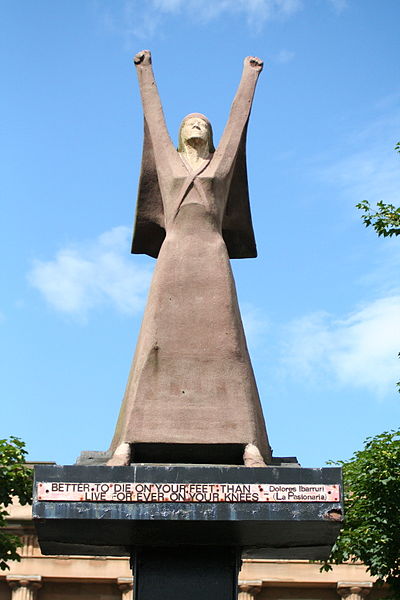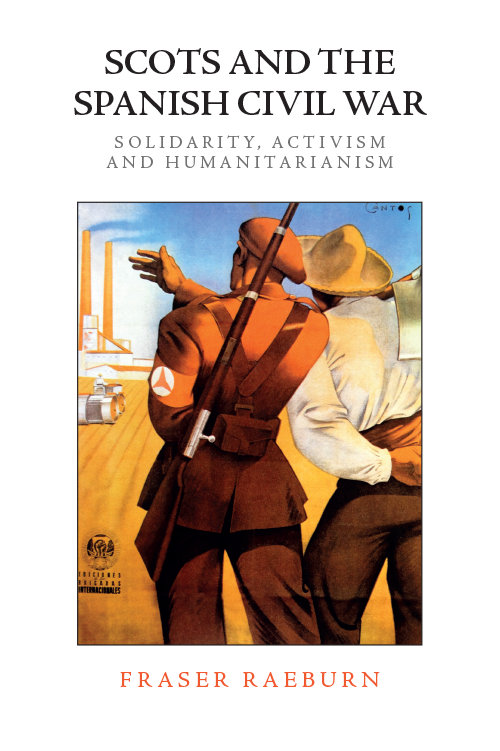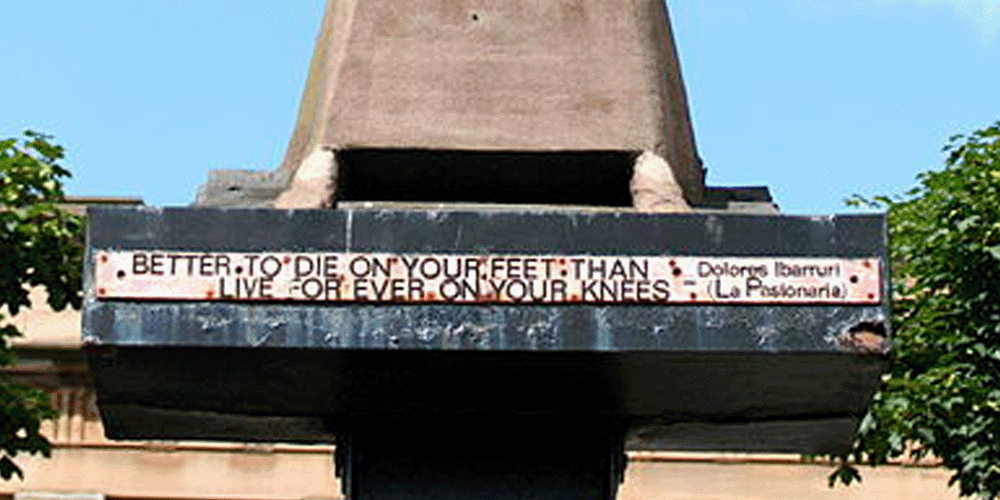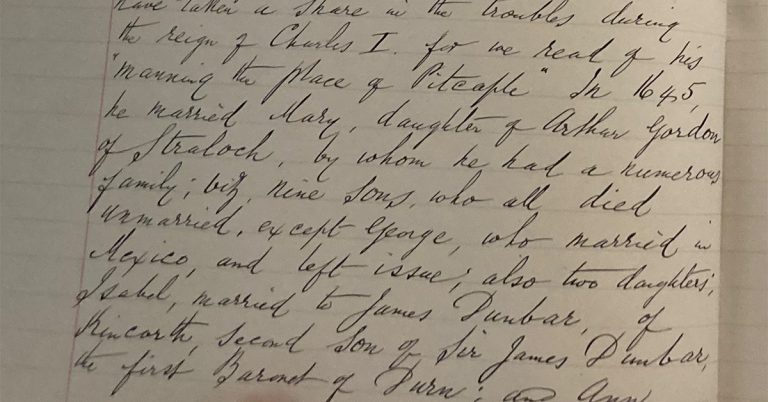
By Fraser Raeburn
On this day 84 years ago, Scottish soldiers went into battle. For most of them, it was for the very first time – and for many, it would also be their last. Throughout modern Scottish history, this basic story has unfolded on battlefields across Europe and beyond, yet this time was different. These Scots were not in the service of the British state – they were fighting in defence of the Spanish Republic as part of the International Brigades. They, along with tens of thousands of volunteers from around the world, had journeyed to Spain to take part in the Spanish Civil War, part of a transnational mobilisation without parallel in twentieth century history.
This war had broken out in July 1936 in the aftermath of an attempted coup to topple the newly-elected Popular Front government. In the tense atmosphere of the 1930s, the conflict soon took on international dimensions – Nazi Germany and Fascist Italy were swift to aid the military rebels, while the Soviet Union supported the left-wing Popular Front government. The remaining European democracies, however, were concerned at the prospect of a leftist revolution. They pursued a policy of non-intervention in the hope of stopping the conflict spiralling into a general European war.
International Brigades
Yet while governments pursued a policy of neutrality, many of their citizens were not content to sit on the sidelines. For those who had come to see fascism as a growing danger to peace and civilisation, Spain seemed to be the latest front in a longer struggle that had seen democratic governments toppled across much of Europe in the interwar period. In Spain, however, popular resistance to the attempted coup seemed to spell a different outcome – here, it finally seemed as if a people was willing to fight, and perhaps even win, against the seemingly inexorable spread of fascism. The struggle captured the imaginations of anti-fascists around the world, and sparked a passionate global response sustained across nearly three years of bitter civil war.
Britons had been fighting in Spain since the first weeks of the conflict – the first casualty, English artist Felicia Browne, died in August 1936. Yet these early months saw only a handful of Scots take part in the fighting, as journeying to Spain remained the preserve of more middle-class individuals with the resources to travel independently. Yet with the growing involvement of the Communist International (Comintern), who could make arrangements for volunteers to travel, it became possible for larger and larger numbers to make the journey to Spain. By autumn 1936, they had been formed into what became known as the International Brigades, and thrown into the desperate fighting around Madrid, as rebel columns converged on the city. This series of battles – initially direct assaults, followed by efforts to flank and cut supply lines – were what led the first contingent of Scots to Jarama in February 1937.
Scots had been conspicuously absent from the initial wave of volunteers, with a bare handful participating in the early fighting. Yet there was a massive wave of recruitment in Scotland – particularly in Glasgow, which saw entire busloads of volunteers depart George Square – over the winter of 1936-7. The result was that the newly-formed British Battalion contained a disproportionate number of Scots going into its first engagement at Jarama in February. Many had spent only a few weeks in Spain, with barely any time or equipment with which to train, leading to some costly mistakes and high casualties in action.

The battle that ensued is one of the most famous engagements of the Spanish Civil War. The significance of the British Battalion’s efforts to stem the rebel advance has long been contested – British and other foreign volunteers made up only a fraction of Republican forces, and it’s far from clear that the rebels suffered the worst of the casualties. Yet the road to Madrid remained open, and the city held until the end of the war over two years later. And for their efforts, the Scots paid a steep price – 37 Scottish volunteers were killed at Jarama, and many others captured or wounded. In all, the Spanish Civil War would claim the lives of at least 129 Scots, making it one of the deadliest conflicts of the twentieth century for Scottish soldiers, even though Britain itself remained neutral.
A Valley in Spain Called Jarama
For Scots and other English-speaking, the Battle of Jarama has become the focal point of commemoration for international involvement in the conflict. Here as well, the Scots left their mark. To this day, the song written by the Glaswegian volunteer Alex McDade in the aftermath of the battle – ‘There’s a Valley in Spain Called Jarama’ – continues to be sung at commemorative events, and has been covered by the likes of Woodie Guthrie. The Scots who fought in Spain continue to be remembered to this day, with dozens of memorials (as well as plays, songs, street art, exhibitions and more) dedicated to their memory.
While the memory has stayed alive, until now their story has remained almost entirely marginal in Scottish history writing. In fact, a great deal of historical research into Scottish politics almost deliberately shies away from dealing with the late 1930s. Writing a Scottish history of the origins of the Second World War would, after all, seem unimaginably parochial. Yet as shown by the story of their involvement in the Spanish Civil War, many Scots did not view the crisis caused by the rise of European fascism as something to be left to the government at Westminster. They, like many others around the world, assumed the right not just to criticise British policy in Spain, but also to take corrective action of their own accord.

Dr Fraser Raeburn is the author of Scots and the Spanish Civil War: Solidarity, Activism and Humanitarianism, published by Edinburgh University Press. You can read more about his work on his website and on Twitter.





